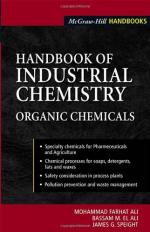|
This section contains 1,427 words (approx. 5 pages at 300 words per page) |

|
Biochemical analysis techniques refer to a set of methods, assays and procedures that enable scientists to analyze the substances found in living organisms and the chemical reactions underlying life processes. The most sophisticated of these techniques are reserved for specialty research and diagnostic laboratories, although simplified sets of these techniques are used in such common events as testing for illegal drug abuse in competitive athletic events and monitoring of blood sugar by diabetic patients.
To perform a comprehensive biochemical analysis of a biomolecule in a biological process or system, the biochemist typically needs to design a strategy to detect that biomolecule, isolate it in pure form from among thousands of molecules that can be found in an extracts from a biological sample, characterize it, and analyze its function. An assay, the biochemical test that characterizes a molecule, whether quantitative or semi-quantitative, is important to...
|
This section contains 1,427 words (approx. 5 pages at 300 words per page) |

|


